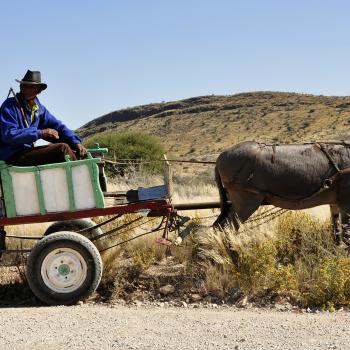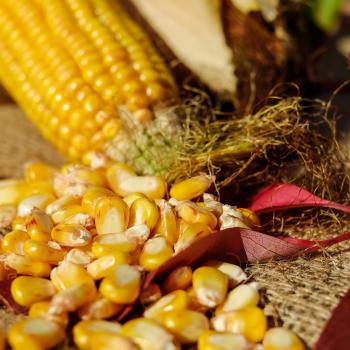Love Comes Softly, chapters 10-11
It took nine chapters to tell the first week, but it takes only two to tell the second week. I’m going to cover them both today, so that you don’t all die of tedium.
Oke has suddenly remembered that Marty lives on a farm, and that that means there are some serious farm things that need doing. Marty spends half of Monday doing the household’s laundry, and then spends the rest of the day sewing, which is almost accurate. Clark butchers the old rooster Marty mangled the day before, and suggests that Marty boil it rather than fry it.
For those wondering about Missie:
She was surprised at how easy it was to care for Missie. The little one was quite content with a big wooden spoon and a bowl to stir um pretend meals for her dolly. Marty decided she’d make some new doll clothes when she had the time.
Yes, 23-month-olds pretend to make meals for their dollies (or stuffed animals). This generally only lasts so long, however. At some point, they get up and start getting into everything—or asking for a snack, or to go outside, or they have a potty accident or need their diaper changed.
We’re definitely back to the hologram Missie theory.
But! Farm work! On Tuesday, Marty, Missie, and Clark go over to the Grahams’ place “for the killing of the hogs.” Another local farmer, Todd Stern, is there with his “near-grown” son, Jason. This is significant because Jason is sweet on the Grahams’ Sally Anne, something Marty is quick to notice.
So, they butcher the hogs. Or rather, the “menfolk” do. The women help prepare the meat, which includes, “preparing the casings for the sausage meat,” which causes Marty to lose her dinner. And no wonder—we’re talking about cleaning out and prepping pig intestines.
The men looked after preparation of the salt brine for curing the bacon and helms and readied the smokehouse for the process. The women ground and seasoned the sausage meat and had the slow, rather boring was of stuffing the casings and tying them into proper lengths.
All that fun stuff. Farm stuff. Everyone descends on the Grahams’ place again on Wednesday and Thursday, as this isn’t a quick process. And there’s lard to “be chopped up and rendered” and divided between cooking and soap-making. At the end, the meat is divided up, and everything is cleaned up and the equipment put away “for the next year’s killing.” Everyone sits down for some celebratory coffee as they prepare to leave.
Marty noticed Jason look in Sally’s direction and saw her face flush beneath it. She couldn’t fault Jason. Sally Anne was a very pretty seventeen-year-old, and just as sweet as she was pretty, Marty thought. Was Jason good enough for her? Marty thought so.
Marty is constantly noticing Jason and Sally Anne because they remind her of herself and Clem. She decides that Jason is worthy of Sally Anne—after all, he’s “strong,” and during the slaughtering he carried “his share of the work,” and he seems “mannerly.” She concludes that he better be worth Sally Anne, because “it looked like he’d have to be, they way they were mooning over each other.”
She remembered again how it had been when she had first met Clem—when his eyes turned toward her, she could feel him watching even when she wasn’t looking directly at him, and her cheeks would flush in her excitement. She had known right away that she would love him, and she guessed he had known it, too. His very presence had sent fireworks through her. She had felt she couldn’t wait to see him again, but she could hardly bear it when she did. She had thought she’d explode with the intensity of it, but that’s what love was like. Wild and possessing, making one nearly burst with excitement and desire—being bout sweet and painful at the same time. Yes, that’s how love was.
This goes back to the title of the book—Love Comes Softly. The whole point is that she thinks of love only as what she felt with Clem—the heart pounding, the butterflies, the headiness. In this book, she’ll learn that there are other ways for love to come—softly, without the fire and explosions.
Maybe that’s what makes this book so different from Farris’s or Rivers’. Down to the title, the point of Oke’s book is its love story. There’s religion in it, too, yes—and there will be a conversion moment—but it’s not nearly as central as is what Marty learns about love.
In Farris’s and Rivers’ books, the point being made has less to do with love than it does with religion—or in Farris’ case, with his specific political ideology. In Rivers’ book, the central theme was that Hadassah had to remain true to her faith. She couldn’t marry Marcus, because he wasn’t a Christian. We don’t see Marty agonizing over anything similar in this case.
Did Clark even ask Marty if she was a Christian? I don’t think so. Certainly, he could likely have assumed as much—this is the eighteenth century U.S., after all—but he didn’t so much as check to ensure that she wasn’t Catholic (which would have been a big issue at the time.
As everyone gets up to leave, Ma Graham invites Marty back the next day for soap-making. “No use us both gittin’ ourselves in a mess makin’ soap,” she explains.
Bless ya, Ma Graham, Marty’s heart cried. Ya know very well I’d be downright lost on my own tryin’ to make soap fer the first time.
Here begins chapter two. As Marty prepares to leave to make soap on Friday, Clark suggests that Missie stay with him, as he’ll be spending the day “doin’ the caulkin’ here in the kitchen” and that way “ya won’t need to worry ya none ’bout her gittin’ underfoot around those hot pots.”
After they make the soap—while they’re waiting for the mixture to cool so that it can be cut into bars—Marty and Ma Graham sit down “for a much-needed cup of coffee and one of Ma’s slices of johnnycake.” And conversation, of course.
Ma Graham explains that her first husband owned a small store in the nearby town, and that after he died she was left with three young children to provide for. Thankfully, Ben Graham “came along with good farmland and the need for a woman,” as well as his own four small children, and they were able to join forces. They then had six more children. That would be thirteen total, but they lost one as a baby, and one of Ma’s children died at age seven, leaving them with eleven.
Sally Anne and Laura were both seventeen, only two months apart, with Ben’s Laura being the older.
When I went back to this book, I’d completely forgotten about the entire plot involving Sally Anne and Laura. Now, it leaves me both very sad and entirely baffled.
It was the two older girls that most interested Marty.
And well they should—Marty is nineteen, and they are seventeen. She has befriended Ma Graham as a sort of mentor, but Sally Anne and Laura present the possibility for friendship—particularly once Sally Anne and Jason marry, as they surely will, putting Sally Anne in the same life position as Marty. But that’s not why they interest Marty. She’s not interested in knowing them. She’s only interested in knowing of them—and in watching them.
Sally Anne was one of the prettiest young things Marty had ever seen, and the girl seemed to simply adore her stepsister, Laura. Laura, though capable and efficient, was plain and probably knew it, for she seemed to always be trying to outdo Sally Anne. Why does she do it? Marty puzzled. Can’t she see that Sally Anne practically worships her? Laura has no earthy reason to lord it over her. In watching more closely, she decided that Laura was unaware of what she was doing, probably riven by a deep feeling of being inferior to her pretty sister.
She doesn’t need to feel thet way, Marty reasoned silent. She has so much to offer jest the way she be.
What is it that Laura has to offer? Marty—and Oke—spend so very much time dwelling on how very pretty Sally Anne is that I don’t wonder Laura feels inferior. If Laura has so much to offer just the way she is, could they at least spell it out? She’s been described as “capable and efficient,” but we’ve been given no reason to think Sally Anne isn’t also capable and efficient.
She supposed there was nothing she could do about it.
Would it be so very hard for Marty to befriend Laura?
However, she promised herself that she’d try to be especially nice to Laura and maybe help her realize she was a worthwhile person.
Oh okay, that’ll totally work. Just be nice to her. In what way? “Thank you for the biscuits Laura, they are lovely.” “Thank you for watching Missie while we butchered the hogs, Laura, that was very nice of you.” Oh yeah, that’ll work. Why in the world can Marty not just befriend Laura?
But no. Marty never befriends either Laura or Sally Anne. Not even once they marry and set up households of their own. She only befriends their mother, Ma Graham. It’s strange. I realize that age didn’t always work the same back then, and that where you were in life often mattered more than a number. But Sally Anne and Laura don’t spend the whole book single and unmarried, and even once they marry—which happens very shortly—Marty makes no move to befriend them.
And so Laura goes to her death. Laura reminds me of Julia, in A Voice in the Wind. She is going to go down to her crave, led there by her foolishness—but for what? For wanting something?
How dare Laura notice that literally everyone moons over her stepsister? How dare Laura want someone—anyone—to look at her that way too? And Clark—Clark could have solved all of this by courting Laura to care for his Missie, rather than jumping to marry a stranger. He would have had plenty of time to observe Laura around her siblings, and to know what kind of mother she would be.
Having had all of these thoughts, Marty returns home to find the kitchen newly caulked, and all of the old mess entirely cleaned up. She feels a moment of strong appreciation for Clark.
And that’s the end of that.
I have a Patreon! Please support my writing!















